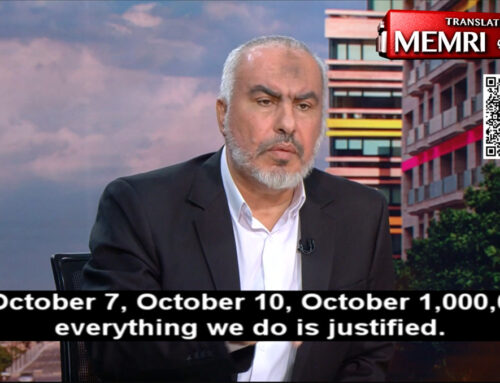New York City, 1971
For “Whoever desires to love life and see good days, let him keep his tongue from evil and his lips from speaking deceit;
1 Peter 3:10 — English Standard Version
To supplant the word, homosexual in favor of the word “gay,” a word given by Satan, by the homosexual community to the world, is to speak deceit. The corruption of speech deflects and thus gives approval to the very sexually immoral acts by not writing or speaking accurately. We either accommodate sin and evil to please the world, or we live to please God. Period
Therefore, get rid of all moral filth and the evil that is so prevalent and humbly accept the word planted in you, which can save you.
James 1:21 — New International Version
Every professed Christian needs to read the following article that appeared in the New York Times in 2014. Then decide within their heart if they want to continue accommodating, elevating, approving, and appeasing the sexual immorality, the sexual deviancy, and the sexual perversion of homosexuality by using the word “gay” with its origin within the homosexual community to deflect people’s minds from the deviant and perverted act. Or begin using the accurate word to describe the people burning with lust for their own kind.
In the same way the men also abandoned natural relations with women and were inflamed with lust for one another. Men committed shameful acts with other men, and received in themselves the due penalty for their error.
Romans 1:27 — New International Version
Consider the excerpt from the article below;
“Homosexual’ has the ring of ‘colored’ now, in the way your grandmother might have used that term, except that it hasn’t been recuperated in the same way,” said George Chauncey, a Yale professor of history and an author who studies gay and lesbian culture.
“Consider the following phrases: homosexual community, homosexual activist, homosexual marriage. Substitute the word “gay” in any of those cases, and the terms suddenly become far less loaded, so that the ring of disapproval and judgment evaporates.”
“In the early 2000s, when same-sex marriage was a brand-new concept, gays were routinely described in mainstream media as homosexuals. Today, use of the word is less and less frequent. A Google Books scan shows a sharp decline in its use in recent years after peaking around 1995.
Scholars expect the use of the term to eventually fall away entirely.
These shifts always reflect a change in sensibility,” said Geoffrey Nunberg, a linguist who teaches at Berkeley. “That’s what happened when ‘Negro’ yields to ‘black’ and ‘African-American.’ It’s just an old-fashioned word that denotes a generally neutral but old-fashioned sensibility.”
Yes, precisely, remove the facts and the truth of the act, and the act loses its disapproval. It’s exactly why Satan put the word “gay” into the hearts and minds of the homosexual community to deflect and nullify, numb, evaporate disapproval and remove the fact of the sexually immoral act and make it acceptable. Normalize the abnormal. Say something long enough, even if a lie, even if utter dung and nonsense, and the mindless, thoughtless people oblige. Desiring to please man and woman rather than God. Preferring to be indistinguishable from anyone in the world that is in utter darkness.
Professed Christian writers, speakers, and all professed Christians who use the word “gay” rather than the accurate word homosexual are greatly obliging in having the word homosexual go away entirely replaced with the meaningless, mind-numbing, and ridiculous word “gay” supplanting and deflecting from the sexually deviant and abnormal against God and nature practices.
Thus the erosion and decline began. Swiftly. The New York Times, that bastion of liberalism, did not begin using the word “gay” to describe homosexuals until 1987. And professed Christians jumped on the “let’s call homosexuals ‘gay'” train shortly thereafter giving no thought to their words or actions. Preferring to accommodate the world and this sin rather than to write or speak truthfully, factually.
Now, every Christian writer, and almost every professed Christian I encounter uses the word “gay,” the world’s word, Satan’s word, the homosexual word for their sexually deviant and sexually perverted acts.
They loathe using the word homosexual because it contains “homo” which denotes one, the same, and they loathe that the word homosexual contains the word “sex” but they burn with lust for their own kind.
Too bad reality, the facts, the truth gets in the way of people’s delusion and hatred of the truth.
Any professed Christian that supplants the truth and accommodates the sin, the immorality, the worldliness and insists on using the word “gay” to define or describe a man or a woman — there is no need to use the word lesbian, as homosexual means a person who is attracted to and has sexual relations with their own sex — needs to feel shame. For being indistinguishable from the world. To accommodate the erosion of language.
A Tree Is Known by Its Fruit
“Either make the tree good and its fruit good, or make the tree bad and its fruit bad, for the tree is known by its fruit. You brood of vipers! How can you speak good, when you are evil? For out of the abundance of the heart the mouth speaks. The good person out of his good treasure brings forth good, and the evil person out of his evil treasure brings forth evil. I tell you, on the day of judgment people will give account for every careless word they speak, for by your words you will be justified, and by your words you will be condemned.”
Matthew 12:33-37 — English Standard Version
Of course homosexuals find the world homosexual disparaging and prefer the innocuous word “gay.” Evil, sin always wants to deflect, lie, hide from the truth, and seduce with the tongue in order to hide from its actions. Deflecting the sin against God and nature they practice. But the word “gay” is not innocuous. It is very harmful. To the truth. To reality.
The same applies to using mindless and lazy acronyms or using terms such as “the alphabet people” to describe a group of sexually immoral people, sexually deviant people that live against God, against God’s Word. Take the time to seriously weigh and consider the words we use, our speech. Every word matters.
Why do you desire to appear indistinguishable from the world? Why do you prefer to accommodate sin and use the world’s terminology rather than the correct words to describe a behavior? A practice?
Why shirk from the facts and the truth and appear no different than the homosexuals, the professors, the people who started and pushed for the truth of the homosexual act to come up with a word to remove the disapproval and accept the very sexually perverted acts in question?
If you define yourself as a true Christian person? Then it’s time you begin defining and calling things as they really are and consider pleasing God rather than pleasing the world, pleasing man.
This changing of words and meanings, this corruption and erosion of language have been done, is done with intent. Evil intent. This is not coming from God or the Word of God but from the inherently evil nature of man.
Either serve God or serve man, then thus in so doing serve Satan. Your choice. Your eternity. You’re having to explain yourself when before God.
“it is not what goes into the mouth that defiles a person, but what comes out of the mouth; this defiles a person.”
Matthew 15:11 — English Standard Version
Set a watch, O LORD, before my mouth; keep the door of my lips.
Psalm 141:3 — King James Version
Read on…
Ken Pullen,
The Decline and Fall of the “H” Word
March 21, 2014
By Jeremy W. Peters
Reprinted from The New York Times
To most ears, it probably sounds inoffensive. A little outdated and clinical, perhaps, but innocuous enough: homosexual.
But that five-syllable word has never been more loaded, more deliberately used and, to the ears of many gays and lesbians, more pejorative.
“ ‘Homosexual’ has the ring of ‘colored’ now, in the way your grandmother might have used that term, except that it hasn’t been recuperated in the same way,” said George Chauncey, a Yale professor of history and an author who studies gay and lesbian culture.
Consider the following phrases: homosexual community, homosexual activist, homosexual marriage. Substitute the word “gay” in any of those cases, and the terms suddenly become far less loaded, so that the ring of disapproval and judgment evaporates.
Some gay rights advocates have declared the term off limits. The Gay and Lesbian Alliance Against Defamation, or Glaad, has put “homosexual” on its list of offensive terms and in 2006 persuaded The Associated Press, whose stylebook is the widely used by many news organizations, to restrict use of the word.
George P. Lakoff, a professor of cognitive science and linguistics at the University of California, Berkeley, has looked at the way the term is used by those who try to portray gays and lesbians as deviant. What is most telling about substituting it for gay or lesbian are the images that homosexual tends to activate in the brain, he said.
“Gay doesn’t use the word sex,” he said. “Lesbian doesn’t use the word sex. Homosexual does.”
“It also contains ‘homo,’ which is an old derogatory,” he added. “They want to have that idea there. They want to say this is not normal sex, this is not normal family, it’s going against God.”
Historians believe the first use of “homosexual” was by Karl-Maria Kertbeny, a Hungarian journalist who wrote passionately in opposition to Germany’s anti-sodomy laws in the 19th century.
But by the 20th century, the word had taken on a definition associated with the American Psychiatric Association’s classification of same-sex attractions as a mental disorder. That did not change until the association reversed itself in 1973.
William Leap, a professor of anthropology at American University who studies the field of “lavender linguistics,” which examines how gay people use certain words and phrases, said the offensiveness of the word stems from its medical history. “It already has all that clinical baggage heaped on it: that’s the legacy of the term now,” he said, adding that because of its use in a scientific way, many people do not realize how it can fall on gay and lesbian ears.
“It’s not like ‘faggot,’ which is a negative term that could get somebody’s mother to slap their hand,” he said. “Homosexual is a term that everybody knows.”
Yet it endures.
“Now they’re encouraging this young man who’s announced he’s homosexual to go play, when Obama said he wouldn’t even let his own son play,” Rush Limbaugh said recently as he talked about Michael Sam, the college football player who recently came out. When Gov. Jan Brewer of Arizona faced pressure to veto a bill that would have allowed businesses to refuse service to gay and lesbian customers, Mr. Limbaugh cited the work of the “homosexual lobby.”
And last year, when Jason Collins became one of the first professional male athletes to reveal he was gay, Chris Broussard, an ESPN commentator who has called homosexuality “that lifestyle” and condemned it as a sin, announced that he had “no problem with homosexuals.” Later, an article in The Christian Post described his comments, noting that Mr. Broussard went on to discuss his conversations on the subject with a gay colleague, LZ Granderson, whom the writer noted is “a homosexual ESPN commentator.”
During oral arguments last year in the Supreme Court case Hollingsworth v. Perry, when Justice Antonin Scalia asked the lawyer Ted Olson, “When did it become unconstitutional to prohibit homosexuals from marrying?” it seemed to some that he was unable (or unwilling) to use the word gay.
The word’s power depends, of course, on who is using it. In the late 1970s, Anita Bryant’s “Save Our Children” campaign was centered on the notion of “homosexual recruitment,” the belief that gays and lesbians tried to woo unsuspecting children into their ranks. Gerry E. Studds, the first openly gay member of Congress, once recalled how someone confronted him about whether he was still a “practicing homosexual.” He shot back: “No. As a matter of fact, I think I’m very good at it.”
When Professor Leap’s students use the term, which they still do occasionally, he corrects them. “I say, ‘Excuse me. Let me give you a piece of vocabulary instruction. In this class the word is gay or lesbian, and this is why.’ “
Gays and lesbians adopted various terminology of their own, often code words in conversation with one another. Because gay was already a known adjective meaning joyful, it could be used as a way to communicate same-sex desires to others who were in the know.
“A lesbian could say she met a gay gal the night before and her lesbian friend would know exactly what she meant,” Professor Chauncey said, “while her straight boss would have no idea what she was talking about.”
The early gay-rights movement was called the homophile movement because its founders explicitly rejected the word homosexual; they did not want to be identified as exclusively sexual beings.
Franklin E. Kameny, a gay rights pioneer, coined the phrase “Gay is Good” in 1968 as a way to help strip away some of the negative association. By then, gay had become the preferred term among gays and lesbians. But it would take decades for the rest of the country to catch on.
The New York Times resisted the word gay until 1987, preferring homosexual (now, it prefers the word gay in most contexts). The Washington Times set off in quotes the term gay marriage until 2008. The newspaper also updated its standards that year to say the term was preferred over “homosexual marriage.”
In the early 2000s, when same-sex marriage was a brand-new concept, gays were routinely described in mainstream media as homosexuals. Today, use of the word is less and less frequent. A Google Books scan shows a sharp decline in its use in recent years after peaking around 1995.
Scholars expect the use of the term to eventually fall away entirely.
“These shifts always reflect a change in sensibility,” said Geoffrey Nunberg, a linguist who teaches at Berkeley. “That’s what happened when ‘Negro’ yields to ‘black’ and ‘African-American.’ It’s just an old-fashioned word that denotes a generally neutral but old-fashioned sensibility.”







Leave a Reply, please --- thank you.